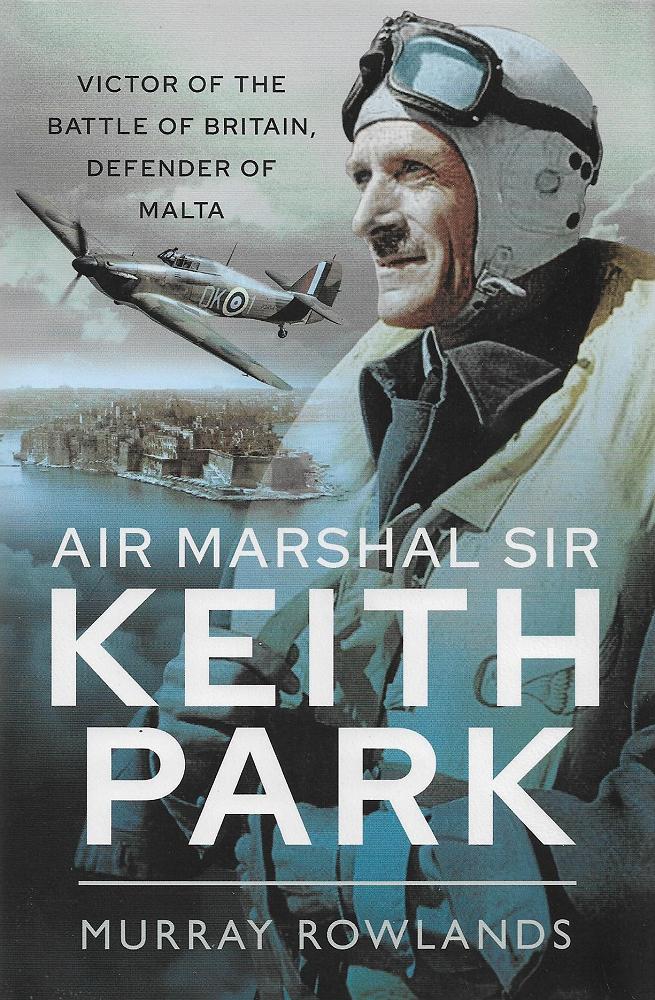
Air Marshal Sir Keith Park. Victor of the Battle of Britain. Defender of Malta.
Reviewer: John Meredith
Publisher: Barnsley: Pen & Sword, 2021, 172 pages.
The Battle of Britain, fought in the skies above south-east England July-October 1940, was a conflict between the German Luftwaffe and the Royal Air Force Fighter Command. Despite determined effort, the Luftwaffe failed in its attempt to destroy Britain’s air defence which Hitler considered necessary if he was to mount a successful invasion. Although often out-numbered by German aircraft, it was the sterling contribution of Fighter Command that led to Churchill’s famous statement: “Never in the field of human conflict has so much been owed by so many to so few.” Central to this achievement was Keith Park (1892-1975).
At the outbreak of WW1, New Zealander Keith Park enlisted for military service and was part of the ANZAC contingent at Gallipoli. Later he transferred to the Royal Flying Corps where he trained as a pilot. Showing early skill in aerial military tactics, he earned a Military Cross and bar, a Distinguish Flying Cross and a Croix de Guerre.
After the war Park was commissioned as Flight Lieutenant in the newly-formed Royal Air Force and gained wide experience in various roles. He was promoted to Air Commodore in 1938 to serve under Air Chief Marshal Hugh Dowding. Dowding had absolute confidence in Park as a strategist and in 1940 appointed him to command 11 Group covering the crucial area of south-east England including London.
In July 1940 the Luftwaffe began attacking the British mainland. Park’s strategy was as far as possible to avoid fighter combat and to concentrate on destroying bombers before they reached their target. Rowlands comments that the British success in driving off invasion lay in the fighting spirit of the RAF’s pilots and the quality of its senior leadership. This leadership was embodied in Keith Park who excelled in giving very clear instructions and whose personal visits to all his sector stations were greatly encouraging to his pilots and ground crew.
Park was, however, not without powerful critics who argued that his primary aim should have been to take the fight to the enemy rather than defending Britain. Rowlands states this resulted in the shameful decision by the Air Ministry that Dowding should be retired and Park
relieved of his command. Nevertheless, Lord Tedder, Marshal of the Royal Air Force, observed that Park’s calm judgement and his ability to listen to his pilots were crucial in winning the Battle of Britain.
Park’s career continued in Training Command and he took a leading role in the defence of Malta and the Mediterranean. He was awarded two knighthoods and retired with the rank of Air Chief Marshal. When his statue was unveiled in London in 2009 the Chief of Air Staff identified Keith Park as a man without whom the history of the Battle of Britain could have been disastrously different.
Keith Park was a New Zealander of whom we may be justly proud. The author is also a New Zealander who now lives in the UK. Rowlands has written three works of military history and in this well-written book, supplemented by many photographs, his admiration for Park emerges clearly.
